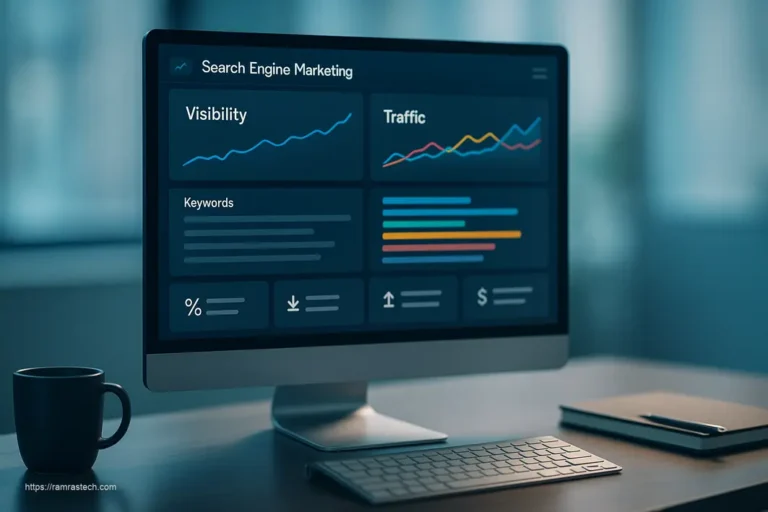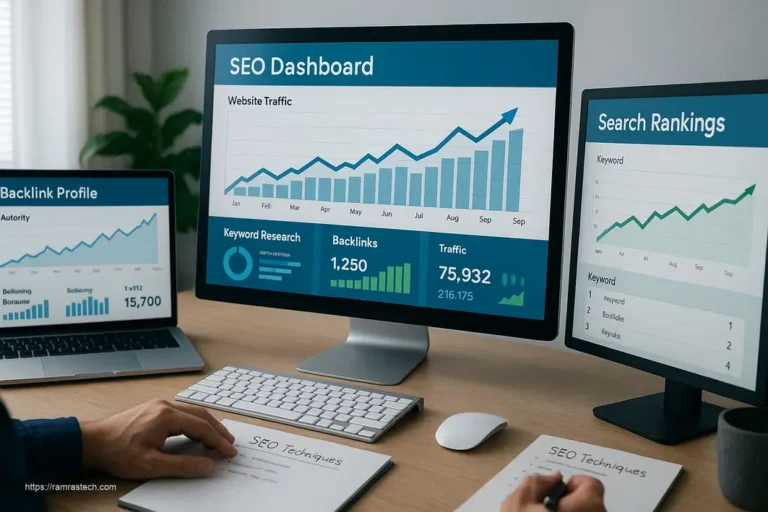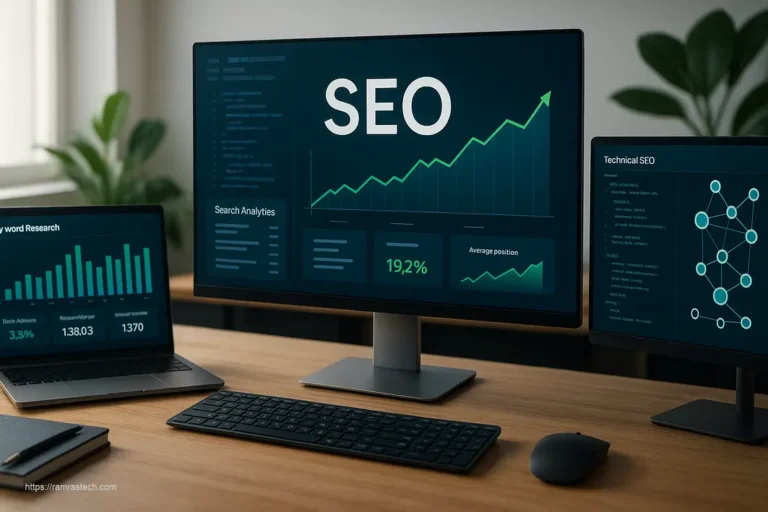10 Unbeatable SEO Tips to Dominate 2025 Rankings

The SEO landscape is evolving rapidly in 2025, with Google’s March Core Update and advancements in AI reshaping how websites rank in search results. Staying ahead requires adapting to these changes while mastering fundamental optimization techniques. Here are 10 powerful SEO strategies that will help you dominate search rankings in 2025.
1. Focus on User Intent and Search Satisfaction
Let’s face it – the days of keyword stuffing and technical tricks are long gone. In 2025, Google’s sophisticated algorithms are laser-focused on one thing: how well your content satisfies user needs.
When visitors find exactly what they’re searching for on your page, they stay longer, engage more, and bounce less. These positive engagement signals tell Google your content deserves higher rankings. But how do you nail user intent?
Start by analyzing the search results for your target keywords. What type of content is ranking? Are users looking for tutorials, product comparisons, or in-depth guides? The existing top results provide valuable clues about what searchers want.
For example, if you’re targeting “best smartphone cameras,” and the top results are all detailed comparison articles with sample photos, don’t create a brief list post with no visual examples. Your content must match or exceed what’s currently satisfying users.
Remember that user intent can shift over time. What worked last year might not work today, so regularly revisit your high-value pages to ensure they still align with current search intent.
2. Optimize Your Title Tags Strategically
Title tags remain one of the most powerful on-page SEO elements in 2025. They’re the first thing users see in search results and significantly impact click-through rates.
Strategic keyword placement in titles continues to be crucial for ranking success. According to a recent analysis of over 1 million search results, pages with their target keyword placed early in the title tag consistently outperformed those without.
Here’s how to craft winning title tags:
- Position your primary keyword within the first 50 characters (ideally at the beginning)
- Create unique, descriptive titles for each page (avoid duplicate titles at all costs)
- Keep titles between 50-60 characters to prevent truncation in search results
- Include power words that trigger emotional responses (like “ultimate,” “essential,” or “proven”)
- Consider adding the current year for timely content (“SEO Tips for 2025”)
While keyword inclusion matters, never sacrifice readability and click appeal for keyword placement. A compelling title that attracts clicks but lacks your exact keyword often outperforms a keyword-stuffed title that nobody clicks.
3. Enhance Website Speed and Performance
In 2025’s competitive SEO landscape, page speed isn’t just a ranking factor—it’s a user experience necessity. Google’s emphasis on Core Web Vitals has made speed optimization non-negotiable for serious SEO practitioners.
Consider these striking statistics: for every second delay in mobile page load time, conversions can fall by up to 20%. That’s a direct hit to your bottom line, regardless of how well-optimized your content might be.
To boost your site’s performance:
- Compress and properly format images (WebP format is now standard)
- Implement lazy loading for below-the-fold content
- Minimize render-blocking JavaScript and CSS
- Utilize browser caching effectively
- Consider a performance-focused hosting solution
- Deploy a reliable CDN to serve content from edge locations
Use Google’s PageSpeed Insights and Core Web Vitals reports in Search Console to identify specific performance issues. These tools provide actionable recommendations tailored to your site’s unique challenges.
One often-overlooked aspect of site performance is mobile experience. With Google’s mobile-first indexing fully implemented, even lightning-fast desktop sites with poor mobile experiences will struggle to rank well.
4. Publish High-Quality Content Consistently
In 2025, consistent publication of satisfying content has actually surpassed backlinks as the dominant ranking factor. This shift represents Google’s increased ability to evaluate content quality and relevance through sophisticated AI systems.
What constitutes “high-quality” content in 2025?
- Comprehensive coverage that fully addresses the topic
- Original insights, research, or data not found elsewhere
- Clear, authoritative writing with proper sourcing
- Engaging multimedia elements like custom images, videos, or interactive elements
- Regular updates to maintain accuracy and relevance
The key is establishing a publishing cadence you can maintain while never compromising on quality. For most businesses, this means publishing thorough, well-researched content 1-3 times weekly rather than daily content that lacks depth.
Google’s algorithm now rewards content that demonstrates true topical authority. This means creating content clusters around your core subjects rather than isolated articles. Each piece should link to related content on your site, establishing your domain as a comprehensive resource on the topic.
Remember that content quality isn’t just about word count. A concise, information-dense 800-word article often outperforms a rambling 2,500-word piece that doesn’t quickly get to the point. Focus on delivering maximum value with minimum reader effort.
5. Strengthen E-E-A-T Signals
Experience, Expertise, Authoritativeness, and Trustworthiness (E-E-A-T) have become central to Google’s ranking algorithm in 2025. This evolution reflects Google’s commitment to promoting content created by genuine experts with firsthand knowledge.
The addition of the first “E” (Experience) in 2023 marked an important shift toward valuing content created by those with practical experience in the subject matter. This means personal stories, case studies, and hands-on insights now carry more weight than theoretical knowledge alone.
To boost your E-E-A-T signals:
- Display clear author biographies highlighting relevant qualifications and experience
- Link author names to their professional profiles (LinkedIn, industry associations)
- Include detailed “About” pages explaining your organization’s expertise
- Secure your website with HTTPS and keep privacy policies transparent
- Obtain industry certifications and memberships where applicable
- Include citations and references to authoritative sources
- Publish testimonials and case studies demonstrating real-world experience
E-E-A-T is particularly crucial for YMYL (Your Money, Your Life) topics like finance, health, and legal advice. In these sectors, Google holds content to an even higher standard, often requiring formal credentials for top rankings.
Remember that building E-E-A-T takes time—it’s not an overnight fix. Consistently demonstrating your expertise through quality content gradually builds the trust signals Google looks for.
6. Optimize for Mobile Experience
In 2025, mobile optimization isn’t just about passing Google’s mobile-friendly test—it’s about creating an exceptional experience for mobile users who now make up the majority of web traffic.
With mobile-first indexing fully implemented, Google primarily uses the mobile version of your site for indexing and ranking. This means desktop-focused sites with poor mobile experiences face significant ranking challenges.
Beyond responsive design, today’s mobile optimization includes:
- Touch-friendly navigation with adequately sized buttons (minimum 44×44 pixels)
- Fast loading times on 4G/5G connections
- Content prioritization showing the most important elements first
- Simplified forms optimized for touchscreen completion
- Properly spaced links to prevent “fat finger” mis-clicks
- Text that’s readable without zooming (minimum 16px font size)
- Elimination of intrusive interstitials that obstruct content
Usability testing on actual mobile devices (not just browser emulators) is essential. Each new phone generation brings different screen dimensions and features that can affect how users experience your site.
Mobile optimization extends to local SEO as well. In 2025, local search behavior is predominantly mobile-based, making mobile-friendly location pages, maps, and contact information absolutely critical for businesses with physical locations.
7. Leverage AI for Content Optimization
AI has transformed SEO in 2025, but not by replacing human writers. Instead, smart SEO teams are using AI tools as powerful assistants to enhance their content strategy.
Here’s how leading SEO professionals are leveraging AI effectively:
-
Content gap analysis: AI tools can analyze top-ranking content to identify topics, questions, and subtopics that your content should address.
-
Semantic enhancement: Advanced natural language processing helps identify related terms and concepts to include, improving topical depth and relevance.
-
Performance prediction: Some AI tools can now predict how likely content is to rank based on analysis of successful pages in your niche.
-
Content refreshing: AI can scan existing pages to identify outdated information and suggest updates to keep content current.
-
User intent matching: Sophisticated AI can analyze search results to determine the dominant intent behind keywords and suggest how to align your content.
The most successful approach combines AI efficiency with human creativity and expertise. Let AI handle data analysis and pattern recognition while humans provide unique insights, brand voice, and emotional connection.
Remember that Google’s own AI systems (like RankBrain and BERT) are increasingly sophisticated at detecting AI-generated content that lacks original thought. Your goal should be using AI to create more valuable content, not just more content.
8. Build Quality Backlinks
While no longer the dominant ranking factor they once were, backlinks remain a significant part of Google’s algorithm in 2025. The difference is that quality now thoroughly trumps quantity.
One high-authority, relevant backlink can provide more ranking power than dozens of low-quality links. In fact, poor-quality backlinks can actually trigger manual penalties or algorithmic filters.
Effective link building in 2025 focuses on:
-
Original research and data: Creating unique studies, surveys, or data visualizations that naturally attract citations
-
Expert contributions: Sharing your expertise on high-authority industry publications
-
Strategic partnerships: Developing relationships with complementary businesses for mutual link opportunities
-
Resource link building: Creating comprehensive guides and tools that serve as reference material
-
Digital PR: Earning media coverage through newsworthy stories and expert commentary
Avoid all forms of manipulative link building, including link exchanges, paid links, and private blog networks (PBNs). Google’s link analysis algorithms have become extremely sophisticated at identifying unnatural link patterns.
Remember that great content naturally attracts links over time. By creating truly valuable resources and promoting them to the right audiences, you’ll build a sustainable link profile that enhances your authority without risking penalties.
9. Implement Structured Data
Structured data has evolved from an SEO “nice-to-have” to an essential ranking factor in 2025. As Google’s search results become increasingly rich with featured snippets, knowledge panels, and AI overviews, properly marked-up content gains a significant advantage.
Schema markup helps search engines understand not just what your content says, but what it means. This semantic understanding allows Google to feature your content in enhanced results that attract more clicks and position you as an authoritative source.
Priority schema markup types for 2025 include:
- Product schema (with pricing, availability, and review information)
- How-to and FAQ schema (for detailed instructional content)
- Event schema (for time-sensitive promotional content)
- Organization schema (for brand knowledge panels)
- Author schema (to establish E-E-A-T credentials)
- Video schema (crucial as video content continues to gain importance)
The latest advancement in structured data is the ability to mark up AI-generated content summaries, allowing you to control how your content appears in Google’s AI Overview feature introduced in late 2023.
Use Google’s Structured Data Testing Tool to verify your implementation and monitor rich result performance in Search Console. Pay special attention to warnings and errors, as incorrect implementation can prevent rich results from displaying.
10. Track Performance with Search Console
In the data-driven SEO landscape of 2025, regular performance monitoring has become essential for maintaining and improving rankings. Google Search Console provides invaluable insights that should guide your optimization strategy.
Beyond basic metrics like impressions and clicks, today’s SEO professionals focus on:
-
Search appearance analysis: Tracking which pages earn rich results and how they perform compared to standard listings
-
Core Web Vitals monitoring: Identifying specific performance issues that could be limiting your ranking potential
-
Mobile usability trends: Spotting mobile experience issues before they impact rankings
-
Index coverage patterns: Ensuring Google can properly crawl and index your most valuable content
-
Query opportunity identification: Finding keywords where you’re ranking on page two that could be pushed to page one with targeted optimization
The real power comes from combining Search Console data with other analytics platforms. For example, correlating ranking improvements with conversion changes helps identify which SEO efforts deliver actual business impact, not just traffic.
Establish a regular cadence for performance review—weekly for high-priority metrics and monthly for deeper analysis. Set up custom alerts for significant changes to catch potential issues early.
Adapting to 2025’s SEO Landscape
Google’s March 2025 Core Update represented one of the most significant algorithm shifts in years, with a heavy emphasis on three key areas:
-
Contextual relevance: Content must now demonstrate deep understanding of topics rather than simply including relevant keywords. This requires comprehensive coverage with appropriate depth based on topic complexity.
-
Domain trustworthiness: Site-wide quality signals have gained importance, making it harder for individual great pages to rank on otherwise mediocre sites. Building overall site authority through consistent quality is now essential.
-
Real engagement metrics: Google has improved its ability to measure how users interact with your site after clicking from search results. Content that answers questions quickly and thoroughly earns better rankings.
To thrive in this evolving environment:
-
Monitor and adjust: Use Search Console to identify which pages were most affected by recent updates and analyze patterns in winners and losers.
-
Focus on content freshness: Regularly update your most valuable content with current information, examples, and insights. Google increasingly favors recently updated content over static pages.
-
Enhance topical authority: Develop content clusters that thoroughly cover your core subjects from multiple angles, using internal linking to create a comprehensive resource.
-
Prioritize mobile experience: As mobile usage continues to dominate, ensure your site offers an exceptional experience on all device types.
FAQs About SEO in 2025
Are backlinks still important for SEO in 2025?
Yes, backlinks remain a significant ranking factor, though their importance has decreased relative to content quality and user experience signals. In 2025, the focus is entirely on quality over quantity—a few highly relevant backlinks from authoritative sites in your industry are far more valuable than many low-quality links.
How often should I update my content to maintain rankings?
Content freshness requirements vary by industry and topic. News and trend-based content may need updates weekly or even daily, while evergreen guides might need refreshing quarterly. A good rule of thumb is to review your highest-traffic pages monthly and update any information that has changed or could be expanded upon.
Does social media activity directly impact SEO rankings?
Social media signals don’t directly influence Google rankings in 2025. However, strong social presence indirectly benefits SEO by increasing brand visibility, driving traffic that might generate backlinks, and creating engagement signals when users share your content. Think of social media as an amplifier for your SEO efforts rather than a ranking factor itself.
How is AI changing SEO in 2025?
AI is reshaping SEO in several ways: improving search engines’ ability to understand content quality and relevance, enabling more sophisticated content analysis and optimization tools, and changing how users interact with search results through AI overviews and summaries. The key adaptation for SEO professionals is focusing on creating genuinely valuable content that AI systems will recognize as authoritative and comprehensive.
What is the ideal content length for ranking in 2025?
There is no universal ideal length for SEO content in 2025. The appropriate length depends entirely on search intent and topic complexity. Simple questions might be best answered in 500 words, while comprehensive guides could require 2,500+ words. Focus on covering the topic completely with maximum efficiency—neither padding content to reach a word count nor cutting it short at the expense of thoroughness.
The Future of SEO: What’s Coming Next
As we navigate through 2025, several emerging trends are already shaping the future of search:
-
Voice search optimization continues to gain importance as smart speakers and voice assistants become more sophisticated. Optimizing for conversational queries and featured snippets positions you well for this growing search medium.
-
Visual search technology is advancing rapidly, making image optimization increasingly important. Detailed alt text, image file names, and surrounding content context all help search engines understand your visual content.
-
AI-driven personalization is allowing search engines to deliver increasingly customized results based on user behavior patterns. This makes ranking tracking more complex and emphasizes the need to optimize for user segments rather than generic keywords.
-
Multi-experience optimization beyond traditional websites is becoming essential. App content, video platforms, and emerging channels all factor into a comprehensive SEO strategy.
The most successful SEO professionals in 2025 maintain the perfect balance: staying current with emerging technologies while mastering the fundamental principles that continue to drive search rankings. By focusing on creating genuine value for users while optimizing the technical aspects of content delivery, you’ll be well-positioned regardless of how search algorithms evolve.
By implementing these 10 unbeatable SEO strategies, you’ll be well-equipped to dominate search rankings throughout 2025 and beyond. Remember that sustainable SEO success comes from balancing technical optimization with creating genuinely valuable content that serves your audience’s needs.






